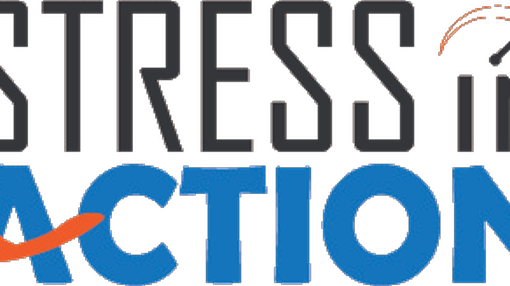I’m a Full Professor of Health Psychology and Technology and direct the Health Dynamics & Self Management Lab at the University of Twente in The Netherlands. My research and education focuses on exploring the scientific foundations and design principles for integrating sensor technology, such as smartwatches that measure physiological signals and provide coaching cues, in (mental) healthcare and self-management. I’m PI of the NWO compassionate technology project and core investigator in the Stress in Action NWO Gravitation project. My vision is to develop health technology that aligns with core human values such as compassion, while striving to create innovative solutions that enhance the way we interact with technology in healthcare settings.
Functions
- Research Fellow of the Design Lab.
- Member of the scientific advisory board of Psylaris.
Expertise
Psychology
- Mental Health
- Humans
- Communication
- Electrodermal Activity
- Behavior
- Treatment
- Research
- Abilities
Organisations
Publications
2026
2025
2024
Research profiles
- Advanced Research Methods for Research Methods in Psychology, Health and Technology
- Compassionate Health Technology
- Supervision of Master theses
- Supervision of Bachelor theses
Affiliated study programs
Courses academic year 2025/2026
Courses in the current academic year are added at the moment they are finalised in the Osiris system. Therefore it is possible that the list is not yet complete for the whole academic year.
- 201400213 - Masterthesis HFE
- 201500175 - Masterthesis HFE
- 201600169 - Masterthesis HPT
- 202000375 - Bachelorthesis HPT
- 202000381 - Bachelorthesis PCPT
- 202000383 - Bachelorthesis HFE
- 202001489 - Masterthesis PCPT
- 202001490 - Masterthesis PCPT
- 202200076 - Coping with Disease in a Digital Era
- 202200087 - Masterthesis PCPT
- 202200088 - Masterthesis PCPT
- 202200244 - Internship EP
- 202200245 - Internship CRS
- 202200246 - Internship HFE
- 202200247 - Internship HPT
- 202200248 - Advanced Research Methods for PCPT
- 202300008 - Sustainable Well-being Theoretical
- 202300203 - Compassionate Technology
- 202400407 - Compassionate Health Technology HPT
- 202500163 - Psychology: an Orientation
- 202500236 - Advanced Research Methods for HPT
Courses academic year 2024/2025
- 201400213 - Masterthesis HFE
- 201500175 - Masterthesis HFE
- 201600169 - Masterthesis HPT
- 202000375 - Bachelorthesis HPT
- 202000381 - Bachelorthesis PCPT
- 202000383 - Bachelorthesis HFE
- 202001489 - Masterthesis PCPT
- 202001490 - Masterthesis PCPT
- 202200076 - Coping with Disease in a Digital Era
- 202200087 - Masterthesis PCPT
- 202200088 - Masterthesis PCPT
- 202200244 - Internship EP
- 202200245 - Internship CRS
- 202200246 - Internship HFE
- 202200247 - Internship HPT
- 202200248 - Advanced Research Methods for PCPT
- 202300008 - Sustainable Well-being Theoretical
- 202300203 - Compassionate Technology
- 202400407 - Compassionate Health Technology HPT
Below you will find the list of my current and recently finished projects.
Current projects

Designing compassionate technology with high societal readiness levels for mental healthcare
I'm project leader of this NWO funded project. It is a collaboration between 4 research groups at the University of Twente (Psychology, Health and Technology; Interaction Design; Philosophy and Human Media Interaction), Dimence and Minddistrict. n this project we will find new ways to design and develop with a value that is central to mental healthcare: Compassion. Instead of pushing new technology into healthcare, can we design technology starting from human values? Such compassionate technology should be able to deliver on the promise that technology can improve quality and access to mental healthcare.

Stress in Action
Advancing the Science of Stress by Moving the Lab to Daily Life
Stress-in-Action capitalizes on the fast advances in technology and big data analytics to move stress research from the lab to daily life. The Consortium enables synergistic collaborations to discover 1) how responses to daily-life stress arise from the temporal, dynamic interplay between context and person-specific factors, 2) how daily-life stress can be reliably measured in a specific individual in real-time, and 3) how and when potential beneficial stress-response mechanisms turn into detrimental effects on mental and cardiometabolic health. This enables the development of novel monitoring and intervention strategies to track and reduce daily-life stress and its health impact.
VRelax - Self-management of stress and sleep disturbances with virtual reality relaxation for people with mood, anxiety or psychotic disorders.
Does adding a virtual reality self-management stress-reduction tool (VRelax) to treatment as usual (TAU) reduce psychiatric symptoms, medication use, improve psychosocial functioning and reduce costs in patients with anxiety, depressive, bipolar or psychotic disorder when compared to TAU only, and what are the barriers and facilitators for implementation of VRelax in healthcare?
Finished projects
SENSE-IT: Aiming for the improvement of emotional awareness in patients with severe borderline personality disorder.
I'm a copromotor for this project; Cooperation with Prof. Bohlmeijer and Prof. Westerhof (university of Twente) and GGNet. In his doctoral research Youri Derks focuses on the question how wearablebiosensor technology and mobile coaching can improve psychotherapeutic clinical treatment of mental health patients with borderline personality disorder (BPD).
Real-time tele-monitoring of physiological processes and self-reported craving to reduce relapse rates in alcohol addiction.
I'm a copromotor for this project; Cooperation with Prof. Schraagen, Prof Vollenbroek-Hutten, Dr. Pieterse, Dr. Postel (University of Twente) and Dr. De Haan (Tactus addiction care).In her Doctoral Research Hendrika van Lier examines the experience and physiology of people receiving treatment for alcohol addiction. In addition, she tests the validity of the wearable bio-sensors she uses, and provides a comprehensive literature review on viable theoretical frameworks with essential parameters for real-time and real world alcohol craving research.
Biofeedback for aggression regulation problems in the forensic ambulatory care
I'm a copromotor for this project; Cooperation with Prof. Popma (VUmc, De Bascule), Arkin and the Ministery of Security and Justice. The question whether real-time biofeedback can be a relevant support factor in aggression regulation treatments for adolescents and young adults is the main topic of the doctoral research of Annemieke ter Harmsel. In a Randomised Controlled Trial she will examine both Treatment as Usual (TAU) as well as TAU with real time biofeedback added to answer the question whether biofeedback can be seen as a relevant adjuvans.
If we know better, do we do better: self efficacy through wearable technologies
I'm promotor for this project; Cooperation with Prof. Vollenbroek-Hutten (University of Twente), Dr. Tibert Verhagen (Amsterdam University of Applied Sciences) and CBRE.Elizabeth Nelson studies how information from wearable technology empowers people in maintaining healthy behavior. In addition, the effects of healthy office interventions is studied longitudinally in her doctoral research. Finally, a new embodiment scale will be developed for wearable technologies.
Address
University of Twente
Capitool 15 (building no. 78), room 140
Capitool 15
7521 PL Enschede
Netherlands

University of Twente
Cubicus (building no. 41), room B123
De Zul 10
7522 NJ Enschede
Netherlands
University of Twente
Capitool 15 140
P.O. Box 217
7500 AE Enschede
Netherlands